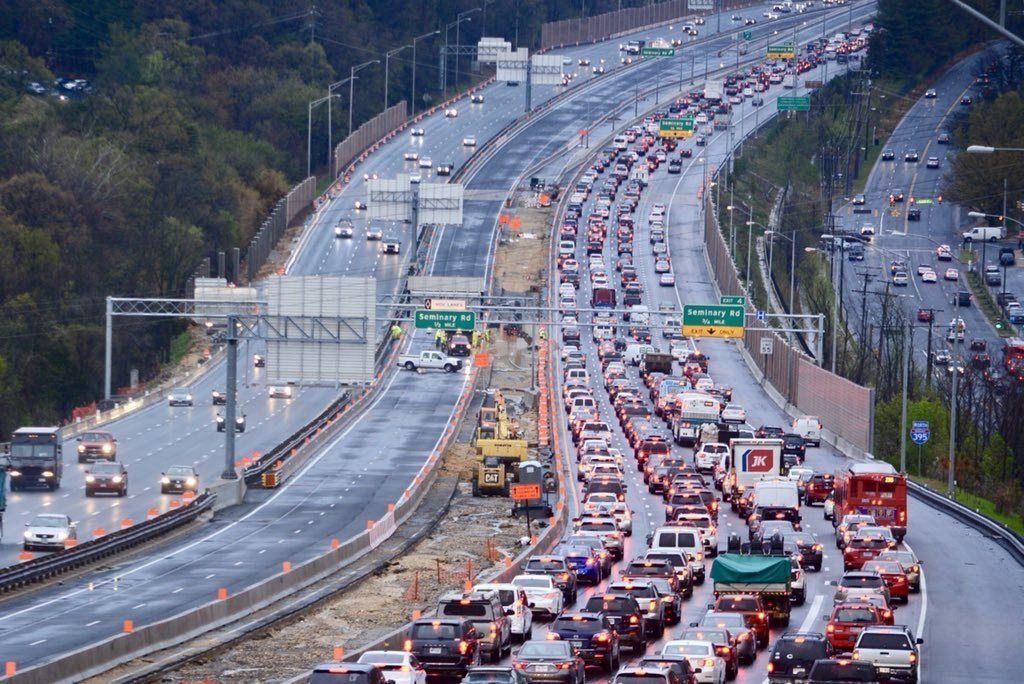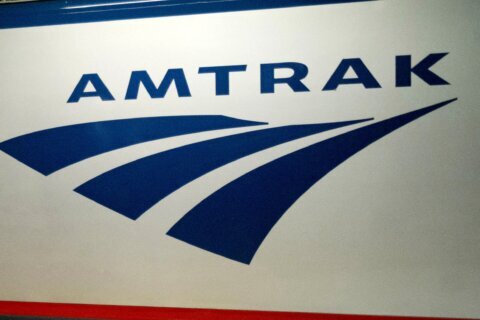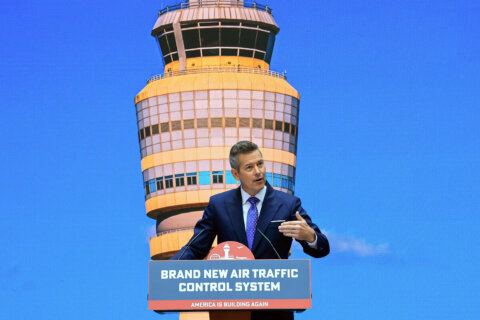
More tow trucks and better signage are among short-term fixes recommended to address Interstate 95 traffic jams as Virginia works through potential long-term projects, such as the two-way 95 Express Lanes or extended Capital Beltway toll lanes over the Wilson Bridge.
The I-95 Corridor Improvement Plan had been expected to provide a full list of prioritized projects for construction, but a lack of funding for an initial $2 billion in identified work and a need for more studies at key locations, such as the Occoquan, mean that list will be delayed.
Instead, Virginia transportation officials are recommending operational upgrades for I-95, Route 1 and Route 301 that can be paid for with the $60 to $68 million in new I-95 funding available over the next three years as part of the I-81 funding deal approved earlier this year.
“We believe that the operational improvements that we have identified along the corridor offer the highest return on investment and fastest potential for implementation,” said Ben Mannell, assistant director of transportation planning with the Virginia Department of Transportation.
Similar projects on I-81 are just getting underway.
The changes to be approved next month would include faster response from tow trucks, more VDOT help trucks, more traffic cameras, improved message signs, variable speed limit signs and small construction projects, such as lane extensions between exits or intersections.
Those changes could significantly cut down on the amount of delays following crashes, or reduce the number crashes in some cases, state studies suggest.
In the meantime, Virginia would build on its current list of 54 highway, rail, bus, and park and ride projects at the most troublesome spots, projected to cost $1.6 billion to $2.1 billion, to form a more complete long-term prioritized list that could begin to emerge as early as next spring or summer.
The state does not have enough detail yet on 35 other locations with the most significant crashes or delays to estimate what projects could be needed at those interchanges, said Deputy Transportation Secretary Nick Donohue.
“We’re at a somewhat anti-climactic stage where we don’t think we can recommend to you a prioritized list of projects,” he told the Commonwealth Transportation Board Wednesday.
Further study is needed at dozens of locations, Mannell said.
“This includes looking at potential bidriectionality of the existing 95 Express Lanes along the corridor, as well as extending the I-495 Express Lanes from Springfield interchange across the Woodrow Wilson Bridge, as well as multiple interchange improvements,” Mannell said.
For example, a new interchange at the Occoquan could overhaul traffic patterns to improve the flow, but there are no details on how something like that could work or the scale of the construction needed at this point.
Those studies of the additional 35 locations would add millions (or more) to the initial $1.6 billion to $2.1 billion list of potential projects between the Wilson Bridge, Springfield, Fredericksburg, Richmond and the North Carolina Line.
“The goal was to provide faster, safer and more reliable travel along the 95 corridor,” Mannell said.
The worst delays on I-95 are at the Occoquan River, followed by other locations in the Northern Virginia and Fredericksburg areas, and the part of I-95 in Richmond where the highway overlaps with I-64.
“The challenge that we have is that our needs far exceed the available revenues,” Mannell said.
The total amount of funding available is not totally clear, since Virginia could use regular transportation funding sources beyond the dedicated I-95 funding to pay for some projects.
State transportation officials are also holding off on any specific promises about the use of new statewide interstate funding until studies of other corridors, such as I-64, are completed.
The state is finishing data collection on I-64, and plans to launch a full I-64 corridor study next month.
Virginia could also consider a gas tax increase next year to pay for broader construction needs.







